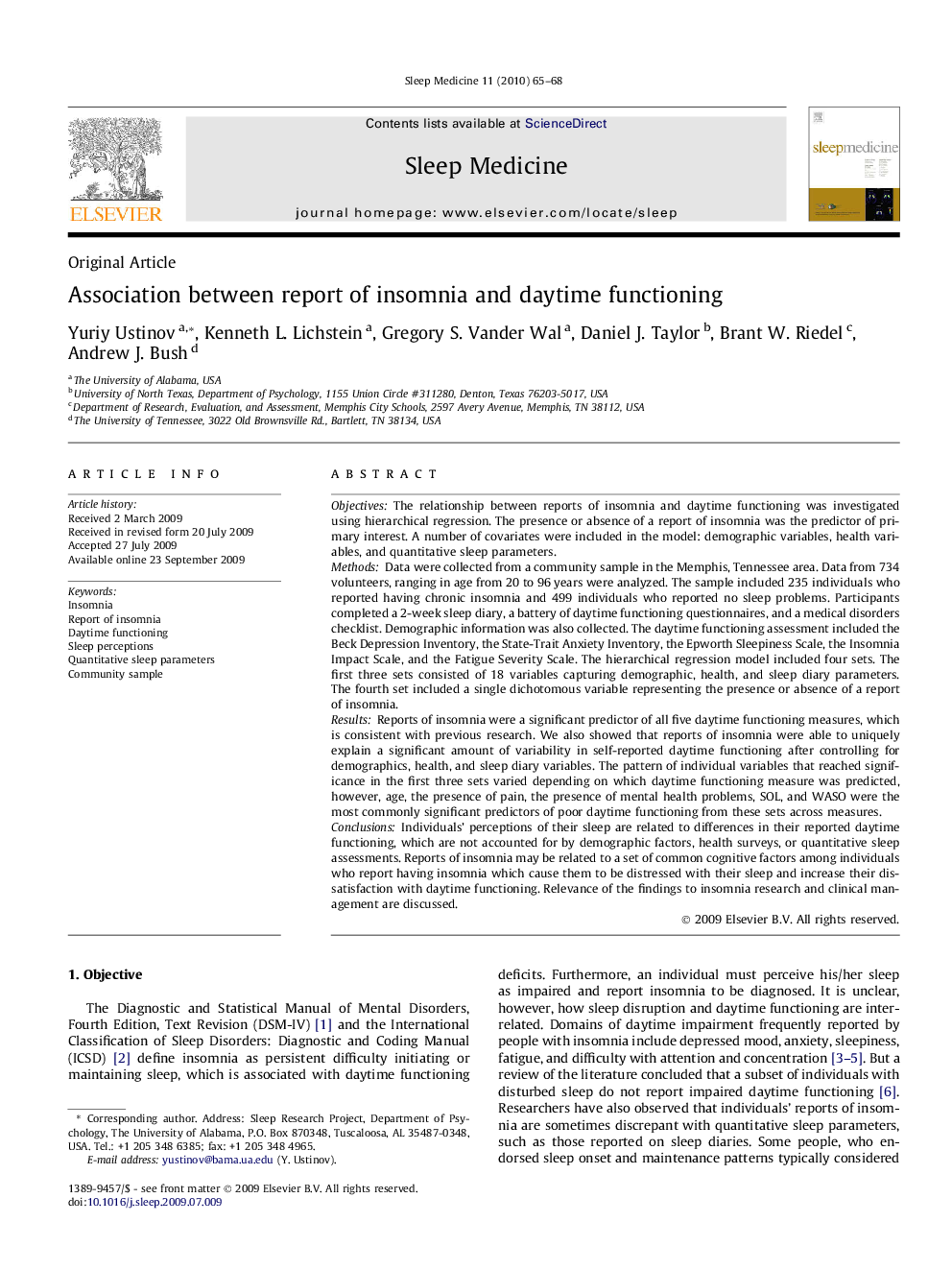| کد مقاله | کد نشریه | سال انتشار | مقاله انگلیسی | نسخه تمام متن |
|---|---|---|---|---|
| 3177414 | 1200300 | 2010 | 4 صفحه PDF | دانلود رایگان |

ObjectivesThe relationship between reports of insomnia and daytime functioning was investigated using hierarchical regression. The presence or absence of a report of insomnia was the predictor of primary interest. A number of covariates were included in the model: demographic variables, health variables, and quantitative sleep parameters.MethodsData were collected from a community sample in the Memphis, Tennessee area. Data from 734 volunteers, ranging in age from 20 to 96 years were analyzed. The sample included 235 individuals who reported having chronic insomnia and 499 individuals who reported no sleep problems. Participants completed a 2-week sleep diary, a battery of daytime functioning questionnaires, and a medical disorders checklist. Demographic information was also collected. The daytime functioning assessment included the Beck Depression Inventory, the State-Trait Anxiety Inventory, the Epworth Sleepiness Scale, the Insomnia Impact Scale, and the Fatigue Severity Scale. The hierarchical regression model included four sets. The first three sets consisted of 18 variables capturing demographic, health, and sleep diary parameters. The fourth set included a single dichotomous variable representing the presence or absence of a report of insomnia.ResultsReports of insomnia were a significant predictor of all five daytime functioning measures, which is consistent with previous research. We also showed that reports of insomnia were able to uniquely explain a significant amount of variability in self-reported daytime functioning after controlling for demographics, health, and sleep diary variables. The pattern of individual variables that reached significance in the first three sets varied depending on which daytime functioning measure was predicted, however, age, the presence of pain, the presence of mental health problems, SOL, and WASO were the most commonly significant predictors of poor daytime functioning from these sets across measures.ConclusionsIndividuals’ perceptions of their sleep are related to differences in their reported daytime functioning, which are not accounted for by demographic factors, health surveys, or quantitative sleep assessments. Reports of insomnia may be related to a set of common cognitive factors among individuals who report having insomnia which cause them to be distressed with their sleep and increase their dissatisfaction with daytime functioning. Relevance of the findings to insomnia research and clinical management are discussed.
Journal: Sleep Medicine - Volume 11, Issue 1, January 2010, Pages 65–68